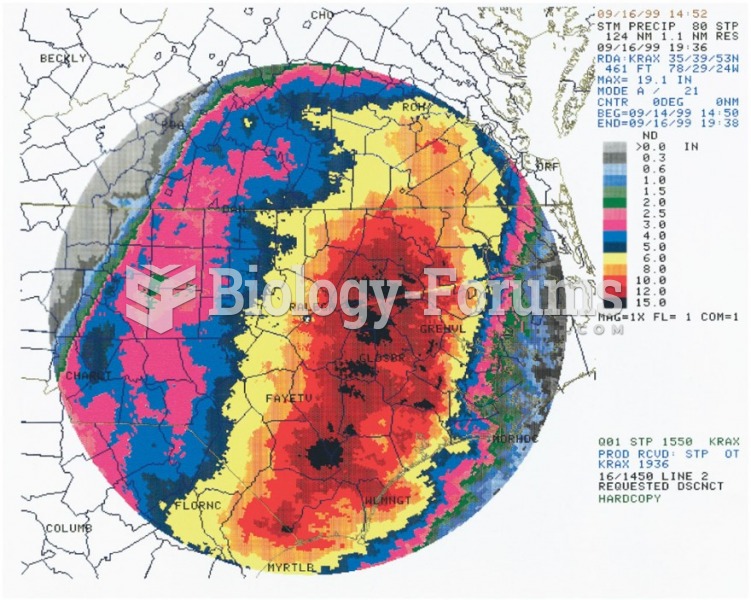|
|
|
The term bacteria was devised in the 19th century by German biologist Ferdinand Cohn. He based it on the Greek word "bakterion" meaning a small rod or staff. Cohn is considered to be the father of modern bacteriology.
When Gabriel Fahrenheit invented the first mercury thermometer, he called "zero degrees" the lowest temperature he was able to attain with a mixture of ice and salt. For the upper point of his scale, he used 96°, which he measured as normal human body temperature (we know it to be 98.6° today because of more accurate thermometers).
In most cases, kidneys can recover from almost complete loss of function, such as in acute kidney (renal) failure.
Symptoms of kidney problems include a loss of appetite, back pain (which may be sudden and intense), chills, abdominal pain, fluid retention, nausea, the urge to urinate, vomiting, and fever.
The average adult has about 21 square feet of skin.
 Competition in a forest can be as intense as competition on a coral reef. However, much of the compe
Competition in a forest can be as intense as competition on a coral reef. However, much of the compe
 (a) Feeding by bear on salmon results in large allochthonous inputs of nutrients into (b) the forest
(a) Feeding by bear on salmon results in large allochthonous inputs of nutrients into (b) the forest
 Forest fragments left by clear-cutting forest from the surrounding landscape have very different phy
Forest fragments left by clear-cutting forest from the surrounding landscape have very different phy




